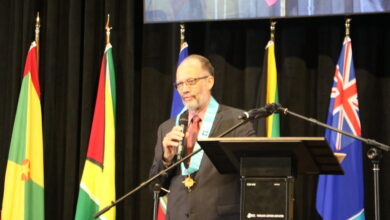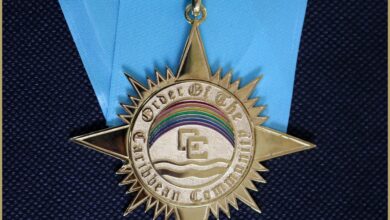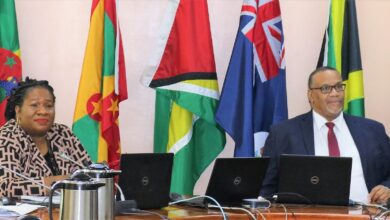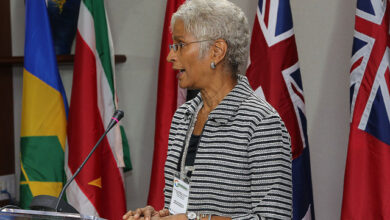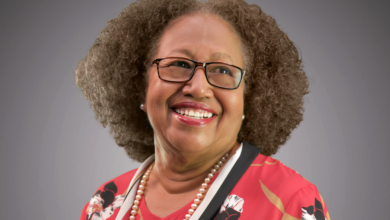(Caribbean Community Secretariat, Turkeyen, Greater Georgetown, Guyana) Madam Chair, Hon. Lisel Alamilla, Minister of Forestry, Sustainable Development and Indigenous Peoples of Belize
I extend to you all a very warm welcome to the 39th Special Meeting of the Council for Trade and Economic Development (COTED) which focuses on the environment and sustainable development.
This special meeting was mandated by CARICOM Heads of Government to prepare a CARICOM position for our participation in the upcoming United Nations Conference on Sustainable Development – Rio+20. In short, we need to discuss the importance of the Rio+20 process; what we want out of Rio and how we propose to get what we want.
At that Conference we hope to secure renewed political commitment for sustainable development; assess our progress to date in fostering sustainable development; and decide how we propose to address the implementation gaps arising out of the outcomes of the subsequent summits on sustainable development.
The Conference will review progress within the framework of Agenda 21. It will also focus on two major themes: a green economy in the context of sustainable development and poverty eradication; and the institutional framework for sustainable development.
For the Caribbean Community, Rio + 20 must be more than just an event. It is a process that presents us with an opportune global platform from which to speak with one voice and articulate with clarity the unique realities, perspectives, priorities and concerns of the Caribbean, and ensure that those are adequately reflected and addressed in the outcome of the Conference. Rio+20 also provides an opportunity for the global community to adopt a new international architecture that will assist CARICOM Member States in re-shaping their own national frameworks for achieving sustainable development.
The Caribbean is blessed with a rich and diversified resource endowment. According to the United Nations Environment Programme, (UNEP). We have been stewards of the highest level of natural resources per capita in the world. It is our task to utilise or manage such resources to the advantage of the Region and ensure a better quality of life for our peoples – the ultimate goal of our regional integration movement.
Ladies and Gentlemen, twenty years ago, after the 1992 Rio Summit on Environment and Development – a summit at which we had demonstrated our commitment to sustainable development – we are heading back to Rio painfully aware that the Caribbean Region is contending, for example, with high levels of indebtedness; increased vulnerability to natural and man-made disasters; and the effects of climate change – all of which has affected our quality of life as a people and undermined our ability to build our social, economic and ecological resilience.
As highlighted in review of the Mauritius Strategy of Implementation, Small Island Developing and Low-lying Coastal States (SIDS), such as ours, continue to be seriously challenged by the increasing vulnerabilities associated with disaster risk management and emerging consequences associated with climate change and sea–level rise.
The management of these risks requires enormous attention and resources given the high level of exposure of the Region to these phenomena. These increasing risks are taking place at a time when CARICOM Member States are increasingly challenged by the new conditions of development assistance and the changes in the international trading regimes, both of which severely constrain our capacity to sustain a programme that fosters growth, competitiveness and sustainable development.
The Rio+20 Conference calls for developing a green economy within the context of sustainable development and poverty reduction. For CARICOM, we first have to reach consensus on a common approach towards giving expression to the green economy at the national level within the context of national peculiarities and circumstances. It will require broader and deeper partnerships between and among economic drivers, social policy engineers, science and technology practitioners, consumers and beneficiaries.
The green economy presents opportunities for the expansion of economic activity and employment which contributes to the reduction of poverty. In addition, to meet that challenge of greening the economy, our most valuable asset – our human resources – must be given every opportunity to fulfil their potential and contribute to that goal. This will require retraining and reorientation of our labour force at all levels.
In developing a CARICOM position for this conference therefore, I would suggest that the COTED consider the level and quality of support necessary to strengthen our infrastructural framework for sustainable development. It should be a position that emphasizes integration, coherence and implementation for sustainable development.
It should be a position that clearly articulates people at the centre of sustainable development, focusing on the needs and aspirations of human beings and their responsibility towards present and future generations.
Simply put: It should be a position that articulates the Region’s priorities; the prerequisites and assumptions for implementation; and the need for resources.
The challenge is yours to chart that position that will help shape the future we want for our children and our children’s children.
I thank you


